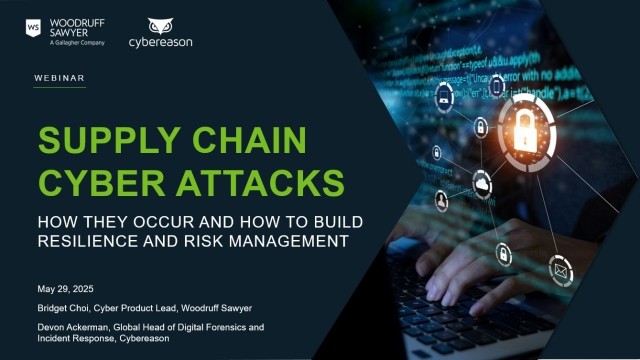Blog
What’s Ahead for Cryptocurrency and Trust Companies?
Read more for how cryptocurrency is affecting trust companies, the risk involved, and how you can manage it.
Today’s financial institutions are obligated to keep up with the evolving cryptocurrency and Decentralized Finance (DeFi) markets due to the enormous wealth being created and demand from family offices, hedge funds, and newly minted millionaires and billionaires to manage these assets.

Major financial institutions such as Fidelity recently announced they have partnered with NYDIG while others have partnered with Prime Trust. Even the US Federal Reserve announced it is exploring a new central bank digital currency (CBDC) in light of the current market cap of $2 trillion dollars for cryptocurrencies.
In addition to the volatility of the market value for cryptocurrencies, new systems seem to be emerging and evolving on a daily basis. It’s almost impossible to keep track of the systems, protocols, and services that will have staying power, not to mention which ones are safe. That's why it's important to understand the particular needs of and risks to trust companies with crypto assets.
How is Cryptocurrency Affecting Trust Companies?
In the past, some of the most perilous claims against trust companies were due to custody and account management for traditional assets. With the introduction of the virtual world and trading platforms, custody relationships, payment systems, tokenization of assets, Initial Coin Offerings (ICOs), and non-fungible tokens (NFTs), the new world risks are real and unknown. An internet search of cryptocurrencies and litigation reveals endless results from Securities Class Actions. Tax issues, exchange bankruptcies, hacking, forensic accounting in divorces, and lending platforms failing and market manipulation.
The reality is that digital currency and its services are still developing. And that development is a good thing for the world economy. However, we have witnessed many economic evolutions where there is both pain and gain as these changes occur in the marketplace. In the insurance industry , trust companies need to partner with their brokers to ensure increased communication. With this increased communication we can ask the correct questions regarding the services trust companies provide customers as compared to what’s covered in the insurance contracts.
Let’s examine some of the current issues trust companies should consider.
Trust Company Custody: Hot and Cold Storage of Crypto Currency
When considering custody from a trust company’s perspective, the two types of storage are "Hot" and "Cold."
Hot storage refers to crypto wallets that are run on the internet. They may be cloud based or accessed on a mobile device or desktop. Because the wallet is connected to the internet, it is at risk to attack by malicious third parties.
There are already examples where these platforms have been exposed. Etherium, Coinbase, Bithumb, and Coincheck have all been victims of recent attacks. In March, 2021, Acer announced it was attacked by REvil with a $50 million ransom demand.
Cold storage is offline storage. The risk management is focused on storing and protecting the private key stored on USBs, hard drives, or offline computers. The challenge with cold storage is the responsibility to hold the key in a safe place with access to passwords.
Of the existing 18.5 million Bitcoin, around 20%—currently worth around $140 billion—appear to be in lost or otherwise stranded wallets, according to the cryptocurrency data firm Chainalysis. Stefan Thomas, a German-born programmer living in San Francisco, had only two guesses left to figure out a password that was worth about $220 million. Gabriel Abed, an entrepreneur from Barbados, lost around 800 Bitcoin—now worth around $25 million—when a colleague reformatted a laptop that contained the private keys to a Bitcoin wallet in 2011.
James Howells mistakenly threw out a hard drive with 7,500 bitcoin while cleaning out his house in 2013 and petitioned the UK dump to attempt to retrieve the device. Also, Bitcoin owners who have passed away account for some of the inaccessible Bitcoin. For example, when the 30-year-old founder of Canadian cryptocurrency exchange QuadrigaCX died, he took with him the private keys to around $190 million worth of various cryptocurrencies, including close to 1,000 bitcoin.
Cryptocurrency Compliance and Reporting for Trust Companies
Compliance is another growing issue for trust companies dealing with crypto. Trust companies are highly regulated and will need strict, flexible protocols that are defensible to federal and state regulators. Given the confidential nature of cryptocurrency, even if their clients are compliant with the Know Your Client (KYC) and Anti-Money Laundering regulation (AML) laws, the implicit nature of the confidential transactions and the counterparty aspect of the transaction create significant challenges.
The trust industry has experienced material claims based on principal and income accounting, suggesting the industry must gain expertise on reporting income to tax authorities for cryptocurrencies. Since many cryptocurrency owners purchase various types of coins and are aggressively trading, keeping track of basis, fair market value, gains, and losses requires new and evolving forms of knowledge.
Given the volatility in this asset class, the investment responsibility is enormous. Many newly minted millionaires may have a concentration issue because of their investment in cryptocurrency. It is important that the settlors provide specific and detailed guidance to the trustee, and perhaps waiver of the prudent investor rule and include exculpatory language in the trust documents.
What Are the Risks to Trust Companies?
The three main emerging risks of crypto to trust companies come in the form of cyber security, errors and omissions, and director and officer liability.
Cyber security: While many people believe crypto exchanges are safe, Etherium, Coinbase, Bithumb, and Coincheck all have been victims of cyber attacks. Currently, the most prevalent cyber claims are a result of system integration and vendor exposure.
Errors and Omissions: The trustee is often given the administration responsibility, but delegation or direction do not relieve trust companies of all liability. Also, as with traditional marketable securities, the integration systems that are commonly used to track transactions and valuations are potentially inadequate. Therefore, the newer crypto platform integration for reporting could accentuate the exposure to errors.
Directors’ and Officers’ Liability: As with all corporate decisions, directors and officers have fiduciary duties to their shareholders and customers. As a result, imperfect decisions made relative to cryptocurrency services can lead to liability.
As we have seen, the issues surrounding cryptocurrency and trust companies are complex and changing. What you can count on is that your Woodruff Sawyer team will stay on top of these financial trends and work on the best ways to mitigate and transfer your risks. Feel free to contact us with your questions and concerns. We’re always ready to help.
Table of Contents










